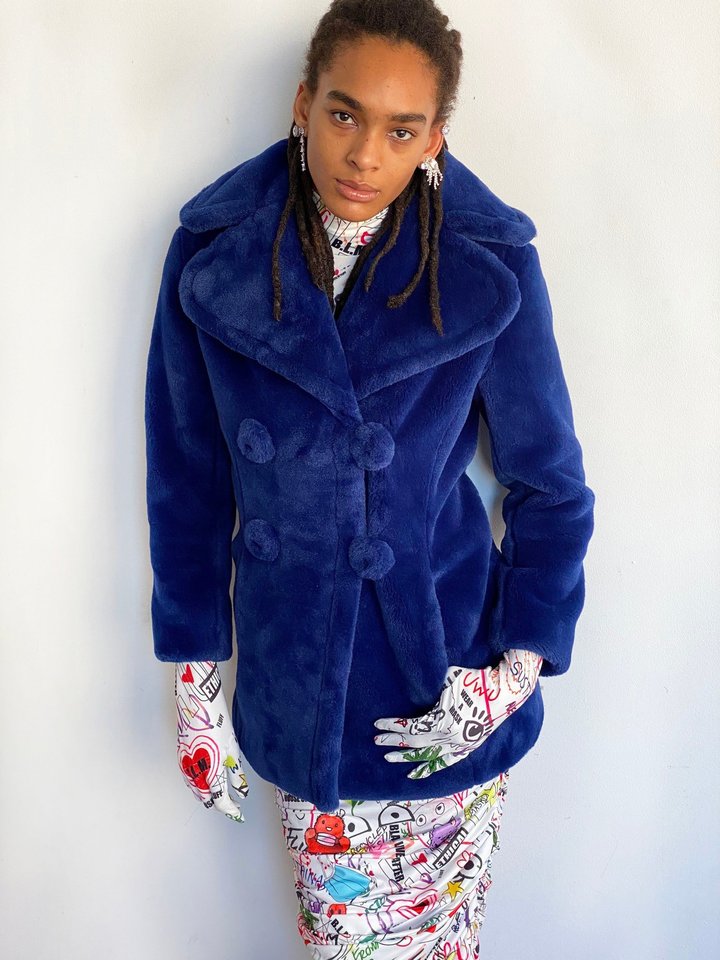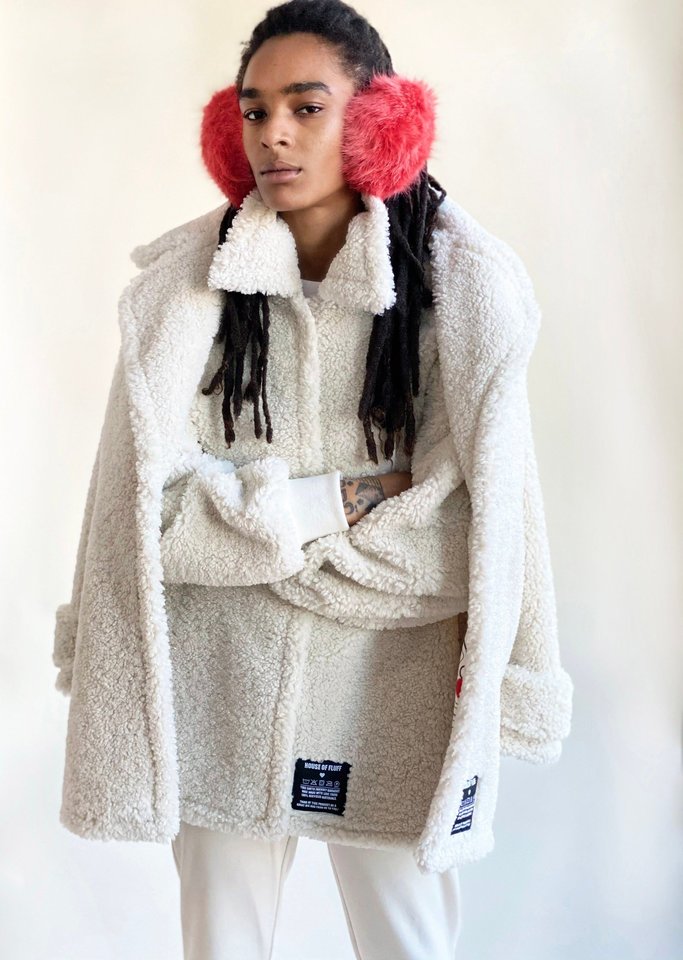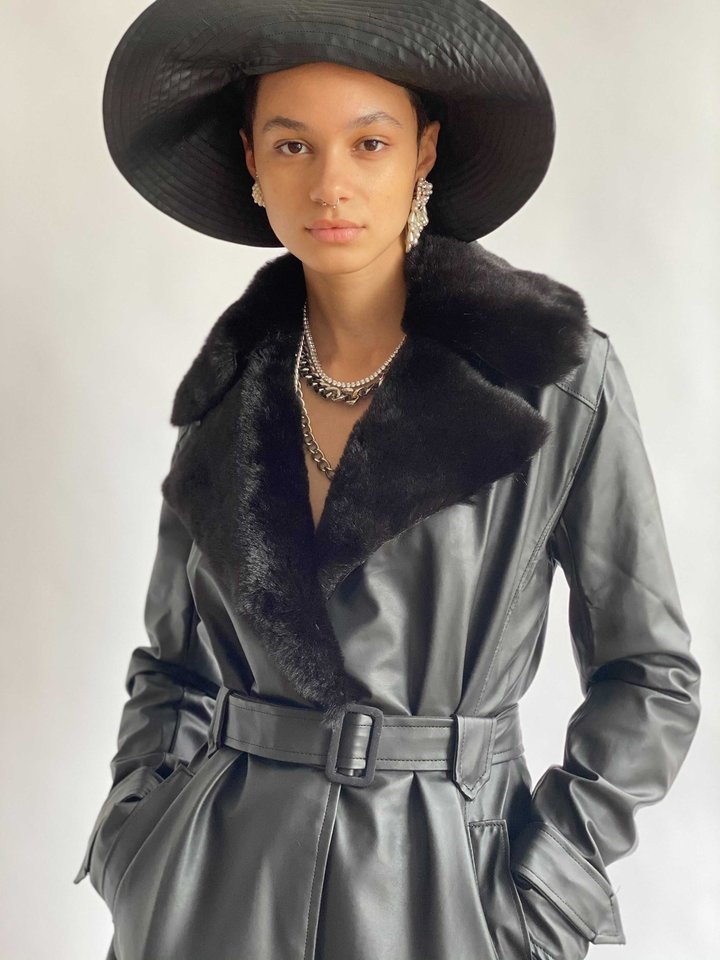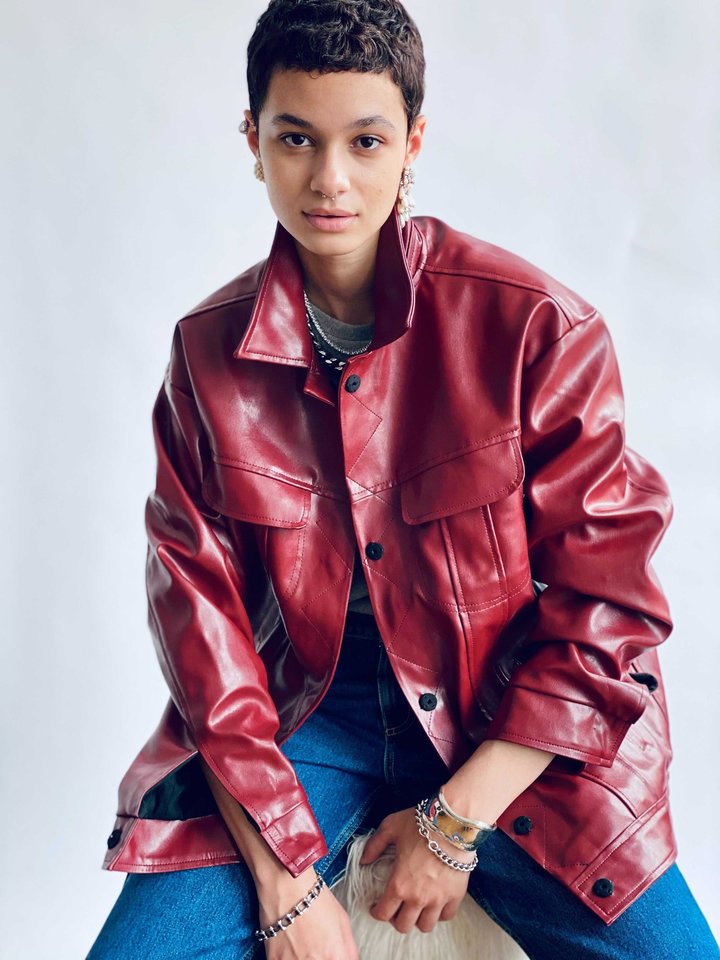
House of Fluff’s New “Fur” and “Leather” Jackets Are Made Out of Plants
Faux options, on the other hand, are typically made of polyester, which has its own environmental drawbacks: high-emissions manufacturing, micro-plastic shedding, and the fact that it’s made from oil (hence the term many have started using: “fracked fashion”).

Where’s the middle ground? Kym Canter, the founder of faux fur label House of Fluff, has spent the past three years thinking about what comes next. Since she couldn’t find a natural, animal-friendly option that worked for her price point, she partnered with a textile developer to create her own plant-based “fur.” With her new collection of trademarked BioFurs and “cactus leather” jackets, she’s joining the likes of Stella McCartney, who introduced a faux fur made of corn last year, and Reishi, an innovator in the mycelium “leather” space.

House of Fluff’s pieces are easily the most accessible and mood-enhancing: The BioFur hoodies, peacoats, and zip-ups are ultra-plush and come in a range of colors, from ivory and camel to lavender and an oddly soothing shade of cobalt-and they’re all under $500. Because Canter developed the textile (rather than purchasing it from a textile mill) and is selling the coats direct-to-consumer, there are no additional mark-ups. “If a lot of people can’t afford to share in these innovations, then what’s the point?” she says. “We want these to be easy to fit into your life.” The BioFur is made from a top-secret corn polymer, but it does require a bit of recycled polyester to hold the fibers together. “Our ultimate goal is to use no polyester at all, and to become fully circular,” Canter says. In the meantime, she’s found an innovative “upstream solution” to deal with the potential microplastics: Canter described it as an additive that’s used in the beginning of the textile manufacturing process, so if one of the coats somehow ends up in a landfill or in the ocean, the additive “kicks in, and a chemical begins to eat away at the micro plastics,” she explains. “It acts like a natural fiber and completely decomposes. That, to me, is an absolute miracle.” None of her peers are using the technology yet, but it could be a promising fix for our dependence on synthetics, which now make up the bulk of our clothing.

Canter’s other big news is a collection of jackets made from cactus “leather,” a natural and sustainable alternative to animal leather. (Cacti have regenerative abilities and consume very little water.) “I looked at all of the plant-based leathers like apple and pineapple leather, and none of them felt luxe enough,” Canter explains. “When I found the cactus leather, it felt really luxurious to me, plus there are no pesticides [used], and after you harvest the leaves, they just grow back. It’s really incredible.” She said an oversized red trucker jacket has been particularly popular, but each one has the perk of being a conversation-starter. “I think there’s nothing better than having cool clothes with a great story,” she says. “People freak out when you say, ‘My jacket is made of cactus!’”

In 2021, Canter plans to transition all House of Fluff coats, accessories, and home goods to BioFur and cactus leather, and she’s hoping to collaborate with other designers and brands who are interested in these materials. “We’re just at the beginning of such an incredible moment of change and innovation with textiles,” Canter says. “All brands should have this level of responsibility towards the products they’re making. It’s the only way we can move forward.”










